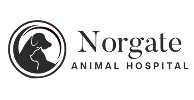Just like us, our beloved pets depend on strong teeth and healthy gums for their overall health. Dental problems are quite common among animals and can lead to serious health concerns if not addressed promptly. This guide will help you identify dental issues in your pet and offer actionable tips to ensure their oral health remains in top shape, so they can enjoy a vibrant smile for years to come. For expert dental care, consider visiting Norgate Animal Hospital, where your pet’s well-being is our highest priority.
Spotting Dental Problems in Pets
- Persistent Bad Breath: While pet’s breath isn’t always fresh, consistently foul-smelling breath may signal dental issues such as periodontal disease or infections.
- Changes in Eating Behavior: Difficulty chewing, reluctance to eat, or favoring one side of the mouth can indicate dental discomfort. If your pet is avoiding certain foods or showing changes in appetite, it’s time for a dental examination.
- Excessive Drooling: While some drooling is normal, excessive amounts can be a sign of oral issues. Look out for blood or pus in the saliva, which may suggest an infection or injury.
- Gum Changes: Healthy gums are pink. Redness, swelling, or bleeding can be signs of gingivitis or more severe periodontal disease.
- Loose or Missing Teeth: Adult pets should not have loose teeth. If you notice any mobility or missing teeth, it’s a clear indication of dental problems that need addressing.
- Tartar and Plaque Buildup: Regularly check your pet’s teeth for yellow or brown tartar. Plaque accumulation can lead to gum disease and other oral health issues.
Promoting Oral Health for Pets
- Regular Tooth Brushing: Start brushing your pet’s teeth early with pet-specific toothpaste and a soft brush. Begin slowly and increase brushing time gradually.
- Dental Chews and Toys: Provide dental chews or toys that help reduce plaque and tartar while keeping your pet engaged.
- Balanced Diet: Feed your pet a diet that supports oral health. Certain pet foods and treats are formulated to reduce plaque and tartar.
- Annual Vet Check-ups: Ensure your pet receives regular veterinary exams that include a thorough dental check. Early detection and treatment of dental issues can prevent more serious problems.
- Professional Cleanings: Schedule professional dental cleanings as advised by your vet. These cleanings involve scaling and polishing to remove plaque and tartar, promoting excellent oral health.
- Chew Toys and Dental Treats: Offer safe chew toys and dental treats that encourage natural chewing behavior, which helps clean teeth and strengthen the jaw.
- Water Additives and Oral Rinses: Consider water additives or oral rinses to reduce bacteria and freshen breath.
By proactively recognizing signs of dental issues and implementing preventive measures, you can help ensure your pet maintains optimal oral health. Consistent home care, along with regular veterinary visits and professional cleanings, will contribute to a lifetime of healthy smiles for your furry friend. A bright smile reflects not just good oral health but also overall happiness and well-being. Start today to support your pet’s dental health and keep their smile shining for years to come.
For expert care and emergencies, visit Norgate Animal Hospital and other trusted veterinary facilities where your pet’s health and happiness are the top priorities.
